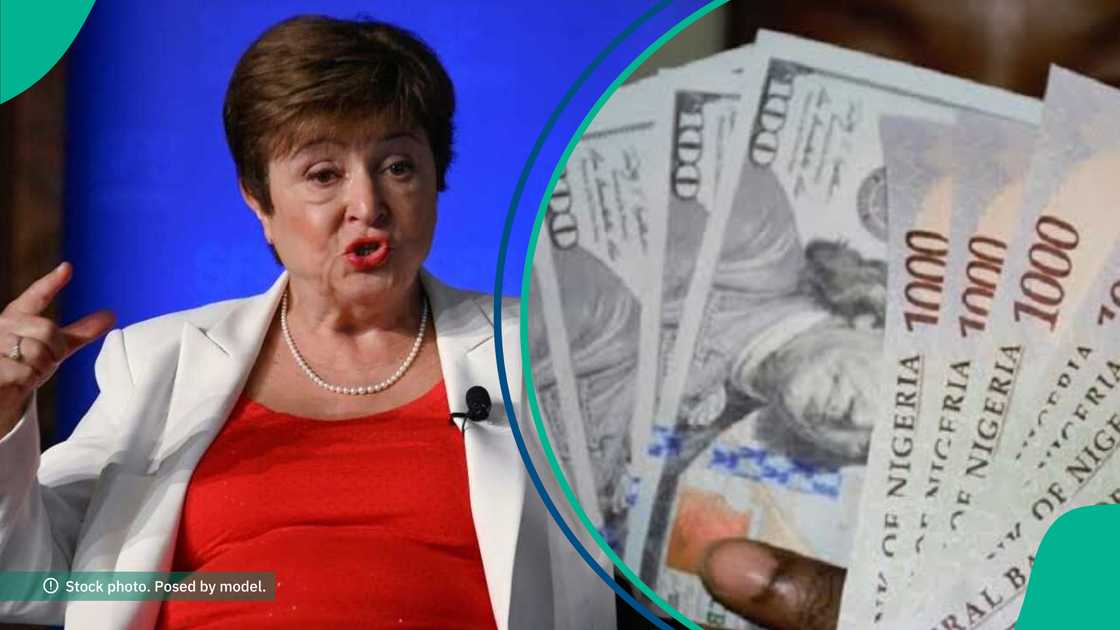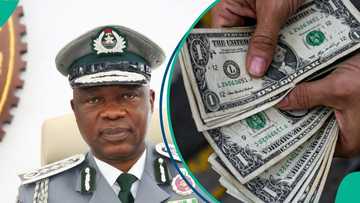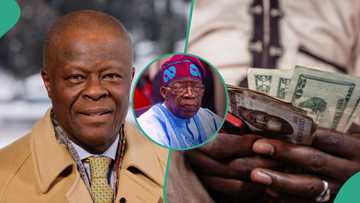Good News as IMF Predicts Naira Stability, Lists Factors to Drive Growth
- The Central Bank of Nigeria's efforts to clear foreign exchange backlogs and recent interest rate hikes are credited with causing the naira to stabilise
- The IMF stated that the CBN's efforts to pay down past-due foreign exchange loans have been essential to maintaining the stability of the currency
- This is as the foreign exchange turnover dropped precipitously from Tuesday's $176.15 million to Wednesday's $136.68 million, a 22.41% decrease
Legit.ng journalist Zainab Iwayemi has over 3-year-experience covering the Economy, Technology, and Capital Market.
The Central Bank of Nigeria's efforts to clear foreign exchange backlogs and recent interest rate hikes are credited with stabilising the naira.

Source: Getty Images
According to the fund, the CBN's efforts to pay down past-due foreign exchange loans have been essential to maintaining the stability of the currency
Furthermore, foreign exchange turnover dropped precipitously from Tuesday's $176.15 million to Wednesday's $136.68 million, a 22.41% decrease
PAY ATTENTION: Legit.ng Needs Your Help! Take our Survey Now and See Improvements at LEGIT.NG Tomorrow
The International Monetary Fund attributes the stabilisation of the naira to the Central Bank of Nigeria's efforts to clear foreign currency backlogs and recent interest rate hikes.
In its most recent Global Financial Stability Report, the IMF revealed this.
The fund claims that the CBN's actions to settle past-due foreign exchange debts have been crucial to keeping the currency stable.
The IMF report read,
“Policy actions by local authorities have also resulted in positive developments; for example, in Nigeria, rate hikes and the clearing of overdue domestic central bank foreign exchange obligations have helped the naira show more signs of stability.”
But according to the most recent data from the FMDQ Exchange, the naira depreciated by 0.06 percent, from N1,653.02 per dollar on Tuesday, October 22, 2024, to N1,654.09/$ on Wednesday, October 23, 2024.
Additionally, foreign exchange turnover fell sharply by 22.41%, from $176.15 million on Tuesday to $136.68 million on Wednesday.
The IMF’s assessment comes amid ongoing efforts by Nigerian authorities to stabilise the foreign exchange market and improve liquidity.
Increased demand for US dollars in the black market, a lack of dollar inflows, and delays in Nigeria's central bank's foreign exchange disbursements are some of the reasons for the naira's depreciation.
The demand for dollars, which is being pushed by financial institutions, non-financial end users, and money managers, has increased the pressure on the naira, added the World Bank research.
It noted,
“By August 2024, the Ethiopian birr, Nigerian naira, and South Sudanese pound were among the worst performers in the region. The Nigerian naira continued losing value, with a year-to-date depreciation of about 43 per cent as of end-August.
“Surges in demand for US dollars in the parallel market, driven by financial institutions, money managers, and non-financial end-users, combined with limited dollar inflows and slow foreign exchange disbursements to currency exchange bureaus by the central bank explain the weakening of the naira.”
Even after the Nigerian government implemented various foreign exchange market reforms, such as liberalizing the official exchange rate starting in June 2023, this condition has continued.
Federal government identifies solution to naira free fall
Legit.ng reWale Edun, Nigeria’s minister of finance and coordinating minister of the economy, has identified boosting oil production as critical to stabilising the naira-to-dollar exchange rate.
Speaking at the ongoing International Monetary Fund (IMF) annual meeting, Edun stressed the need to address foreign exchange (FX) supply issues by improving the country's oil output.
He noted that Nigeria needs to boost its foreign reserves to help the naira against other foreign currencies, TheCable reports.
Proofread by Kola Muhammed, journalist and copyeditor at Legit.ng
PAY ATTENTION: Сheck out news that is picked exactly for YOU ➡️ find the “Recommended for you” block on the home page and enjoy!
Source: Legit.ng





